Studio Job sculpts "autobiographical" Train Crash Table
Design Miami/Basel 2015: Belgian artists Job Smeets and Nynke Tynagel of Studio Job have symbolised their romantic break-up as a head-on collision between two steam trains (+ slideshow).
On display at Design Miami/Basel this week, the sculptural Train Crash table is "purely autobiographical" according to Smeets.
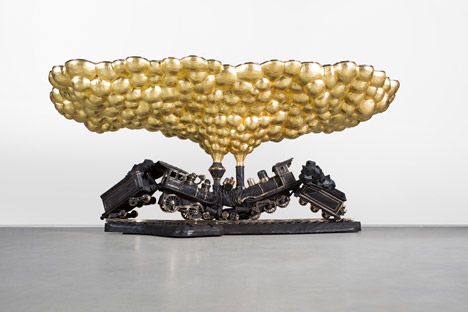
"The piece symbolises the end of a nearly 20-year-long love relation between Nynke and me," Smeets told Dezeen, adding that they are "soul mates".
"Although still creative partners, the energy caused by this abrupt ending is also the beginning of a new direction in our lives and an important inspiration for new work," he said.
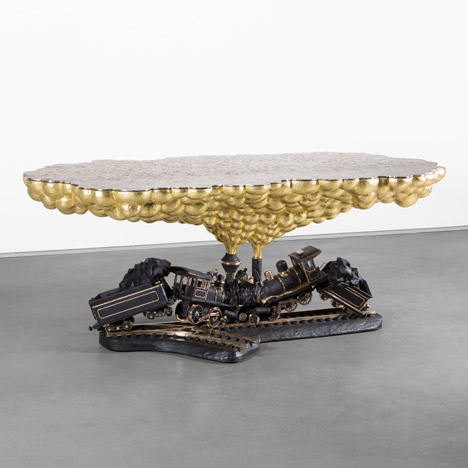
The bronze sculpture depicts the moment just after the crash, with both front engine cars crumpled and the carriages behind flailing from the force.
Smeets said the piece represents "a massive impact creating an enormous amount of energy".
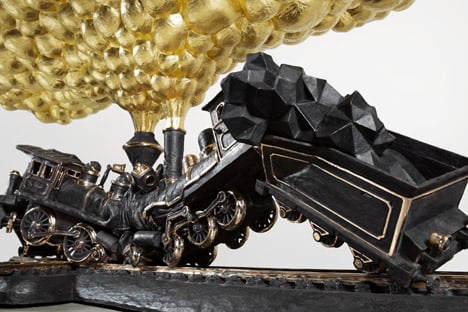
Coal appears to be spilling out of the open cargo containers, patented black like the majority of the train surfaces.
Raised details around the train wheels, doors and windows, as well as the tracks, are picked out in polished bronze.
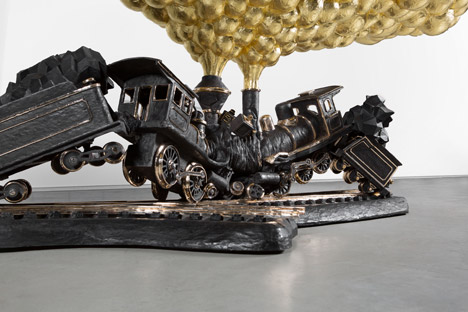
The steam produced by the locomotives is merged into a single cloud, gilded with 24-karat gold over the billowing shapes.
The top of the cloud is flattened to create the 90-centimetre-high table surface, while the train tracks form a level base.
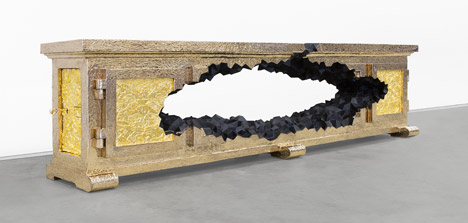
Also at Design Miami/Basel, Studio Job is showing the Robber Baron Buffet – an addition to the 2006 collection of cast-bronze furniture and homeware items designed to represent the excessive tastes of American tycoons and Russian oligarchs.
Dezeen Book of Interviews: Job Smeets features in our new book, which is on sale now
Like the cabinet from the range, the buffet has a large hole through its centre, surrounded by a faceted black surface.
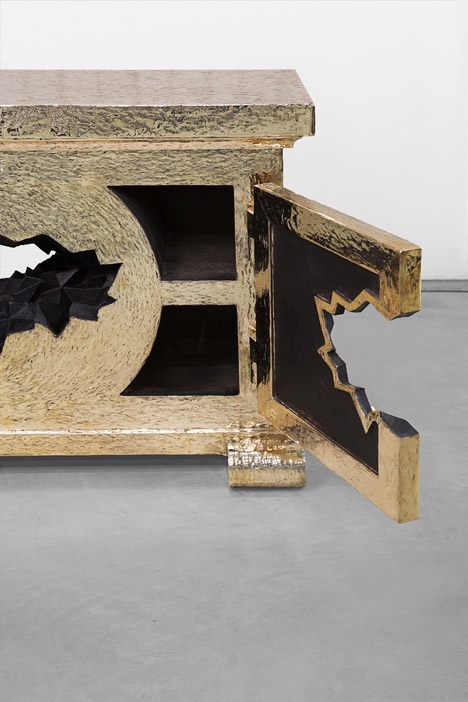
Small compartments are located behind doors at either end of the unit, which is covered in textured polished bronze and gold gilding.
Design Miami/Basel 2015 runs from 16 to 21 June, and also features crystal-related projects by this year's Designers of the Future Award winners and Richard Rogers' redesign for a flatpack home originally created by Jean Prouvé.